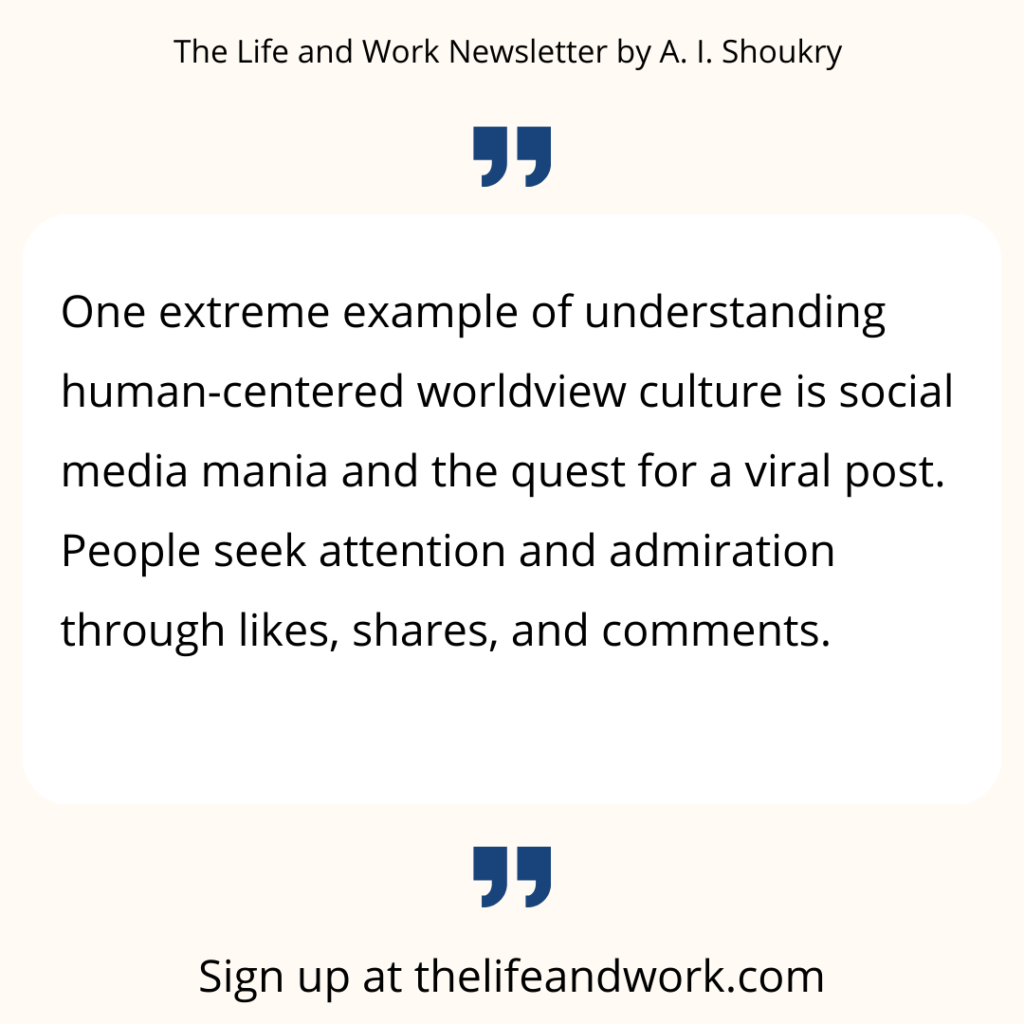A worldview is an overarching framework for decision-making. It is a set of ideas, beliefs, and values that inform and guide our choices. It can be a religious framework, an ethical system, a political ideology, or a personal philosophy.
What shapes our worldview?
Our worldview is unique to each of us and constantly refined and changed as we gain more knowledge and experience. Our experiences and values shape our worldview. It can be influenced by our culture and community, as well as our past experiences, education, and upbringing. Our interactions with others and our thought processes can also shape it.
Human-centered versus God-centered worldview
The main difference between a human-centered worldview and a god-centered worldview is the source of authority.
In a human-centered worldview, individuals make the ultimate decisions and are the leading source of authority.
In a god-centered worldview, God is considered the ultimate authority and source of moral authority.
Both worldviews have different ways of interpreting the world, and individuals may combine elements of both worldviews when making decisions.
Human-centered worldview
A human-centered worldview emphasizes the importance of individual autonomy and freedom and rejects the idea of an absolute source of moral authority. It values the individual, their thoughts, and their experiences.
This worldview encourages questioning and encourages individual growth, exploration, and self-expression.
Individuals are encouraged to take responsibility for their actions and seek truth and understanding.
Followers of that worldview are born seeking their life purpose or might find no sense at all in life. They seek dignity and respect through work, family, or money.
Humans own their bodies; therefore, they are free to do whatever they like to do with their bodies. There are no limits to their freedom as he/her decide what to do.
Human-centered worldview adopters seek self-actualization and accomplishment through their deeds and admiration of their surroundings.
One extreme example of understanding human-centered worldview culture is social media mania and the quest for a viral post. People seek attention and admiration through likes, shares, and comments.
God-centered worldview
A god-centered worldview places God at the center of all decisions and beliefs. It views the world from the perspective that God is the ultimate judge and source of all truth and understanding. He is the ultimate source of moral authority.
This worldview encourages individuals to follow God’s teachings and laws.
In a god-centered worldview, believers do not own their bodies. God owns the body and has given it to humans as a trust.
You cannot do whatever your like with your body or to others’ bodies; humans have innate human rights.
Humans with such worldviews are born knowing they are honored among other species and carry trust.
A trust in carrying the words of God and that God does not need their work, money, or family.
What God wants are their prayers. And prayer carries a broader prospect through spiritual rituals, such as salah in Islam or their daily activities.
However, such activities should have one intention in mind. A true intention is an intention for the one and only God. You perform such actions for God only.
You perform this work perfectly because God asked you to do it with perfection, not because your boss asked for it.
You obey the rules and laws for the good of the community and country.
They believe that humans are created and responsible for carrying trust in life.
They are free and have the right to choose, and such freedom does come with responsibilities towards themselves, others, animals, the environment, and all God’s creatures.
Conclusion
A human-centered worldview emphasizes individual freedom and autonomy, while a god-centered worldview relies on faith and a belief in God as the ultimate source of authority.
Each worldview can be used to create a meaningful framework for decision-making, even if the two worldviews disagree on specific issues. Ultimately, choosing which worldview to adhere to is up to you.
Let’s connect on X
Want to read more?
Subscribe to the Life & Work Newsletter, and every Friday, read one thought-provoking idea about human behavior.

